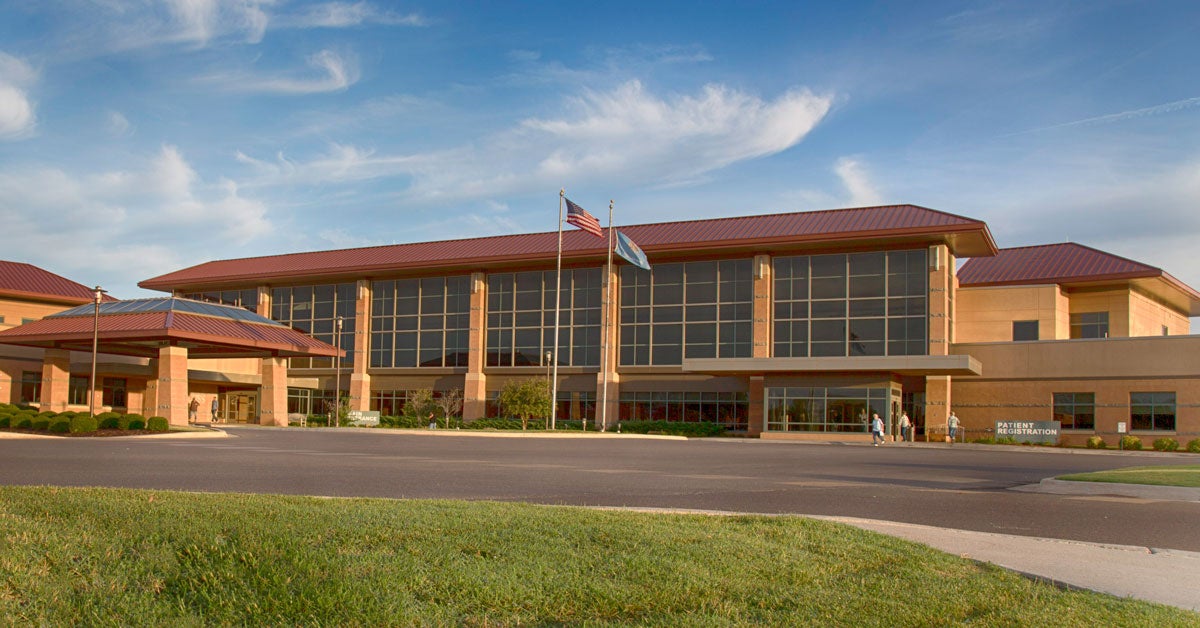The 2022 Rural Physician Recruitment and Staffing Survey from Jackson Physician Search and LocumTenens.com gave rural organizations yet another reason to feel optimistic about their physician recruitment efforts. The data indicates 90% of physicians are open to rural opportunities if the conditions are well-aligned with their most important wants and needs.
While it’s certainly encouraging that physicians appear to be more open to rural opportunities than they have been in the past, the demand for care is also intensifying–putting increased stress on rural physicians.
Fortunately, rural healthcare organizations do not have to depend solely on full-time physicians to serve their communities. The aforementioned study found advanced practice providers (APPs) are also increasingly open to rural job opportunities.
While nearly half of rural healthcare organizations already employ at least one APP, this new data suggests organizations should consider expanding their care teams with a mix of physicians and APPs. A well-balanced rural staffing mix ensures patients have adequate access to high-quality care without overloading providers and putting them at risk for burnout, while also potentially reducing the cost of care.
If your organization needs additional clinical providers, keep reading to learn more about the many benefits APPs can bring to your community and to your facility.
Rural Healthcare Organizations are Already Utilizing Advanced Practice Providers.
According to data from the National Conference of State Legislatures, non-physician primary care providers such as nurse practitioners and physician assistants make up 46% of all providers at rural, federally qualified health centers. As mentioned, other data shows nearly half of all rural primary care practices employ at least one NP, and one in four rural healthcare providers are nurse practitioners.
Takeaway: Citizens in rural communities are already receiving care from advanced practice providers and are not likely to resist the addition of non-physician providers if it means easier access to care. In fact, a full 11% of patients in rural areas were seen exclusively by these providers.
Advanced Practice Providers are Eager to Work in Rural Medicine.
Advanced practice providers in the 2022 rural survey were highly likely to say they would consider practicing in rural locations on a full-time, permanent basis or as a locum tenens provider. As for what conditions would motivate them, like physicians, the most common answer was ”higher compensation, bonuses and benefits” followed by “the ability to work part-time or work flexible hours.”
Advanced practice providers in the survey were nearly three times as likely as physicians to say the opportunity to use telehealth would prompt them to consider a rural job (45% vs. 17%). They were also more likely to be motivated by loan repayment (43% vs 18%) and the chance to spend more time with patients (33% vs. 15%).
Takeaway: Advanced practice providers are attracted to high compensation and flexibility, but the chance to use telehealth and/or loan repayment may help to seal the deal.
Advanced Practice Providers Proved Their Value Long Ago.
The COVID-19 pandemic created an urgent demand for healthcare services for which the US was unprepared. In response to the shortage of healthcare providers, federal COVID-19 legislation broadened the scope of practice for advanced practice providers, where it was also permitted by the state. Nurse practitioners, physician assistants, and other APPs were ready to answer the call, and now, some say their success is proof the expansion should be permanent.
Regardless of the scope of practice debate, few would dispute the importance of advanced practice providers in the delivery of patient care. Whether working independently or alongside a physician, advanced practice providers increase access to care, while easing the burden on physicians and increasing revenue at healthcare organizations. It’s been reported that APPs bring significant cost savings to an organization—up to 30%.
Takeaway: It may be time to rethink what healthcare delivery looks like at your organization. APPs are trained to perform many of the same duties as physicians, often at a lower cost. They have the potential to be a key part of the healthcare staffing mix at any organization.
Care Teams with Physicians and APPs Promote Work-life Balance.
For COVID-weary healthcare providers, work-life balance has never been more important. In the 2022 rural survey, both physicians and APPs ranked “improved work-life balance” among the top three factors that would prompt them to consider practicing in a rural location.
Better work-life balance is certainly in reach with a team-based approach to healthcare delivery. The presence of APPs allows for more flexibility in scheduling, providing better work-life balance for all providers. A collaborative care team where everyone performs to the full extent of their training will free up physicians to focus attention where most needed, give advanced practice providers appropriate autonomy, and help to mitigate burnout among all providers all while improving healthcare outcomes within a community.
Takeaway: What was once the responsibility of one, overworked physician might now be shared between a physician and nurse practitioner or a nurse practitioner and physician assistant under the supervision (if required) of a practicing physician. A flexible staffing mix will expand your candidate options and make your organization more attractive to potential candidates as you recruit.
Technology Facilitates Well-balanced Clinical Care Teams.
COVID-19 expedited the adoption of telehealth even in rural communities. According to a report from Rural Health Information Hub, though there are still barriers to usage, the adoption of telehealth is increasing in rural areas. The report goes as far as to say that the use of telehealth to provide specialty services is more feasible than staffing rural organizations with specialty and subspecialty providers. Thus, telehealth allows organizations to expand care teams to include physicians working remotely. An on-site APP may work virtually with an off-site specialist to coordinate patient care.
Takeaway: Telehealth and virtual meetings enable a team-based approach to healthcare that eases staffing challenges and expands access to care.
Advanced Practice Providers Create Stability Within the Care Team.
Half of the advanced practice providers who responded to the 2022 rural study said they planned to work at least 16 more years before retiring. This suggests the potential for longevity and consistency when incorporating APPs into your rural healthcare staffing mix. This is especially pertinent considering that 2 in 5 physicians are nearing retirement, with the figure being even higher in rural healthcare.
APPs are also more likely to have ties to a rural community. Among the survey respondents, 38% had grown up in a rural community and 33% said they had extended family in the same area they work.
Takeaway: Advanced practice providers are less likely than physicians to be nearing retirement and are more likely to have roots in rural areas. Thus, it may be easier to attract advanced practice providers to your rural location, and once you do, they are likely to stay for a longer tenure, bringing stability to the care team and your patients.
Leveraging Locum Tenens Providers Ease the Burden for All.
The occasional addition of a locum tenens provider on your care team allows providers to take time off, whether for an extended vacation or family leave, without disrupting patient care or placing additional burdens on existing members of the care team. Though administrators may worry about the expense of a locums provider, the benefits of maintaining patient access to care and keeping provider workloads stable typically outweigh the cost.
The other benefit of locum tenens usage is that it may serve as a recruitment tool. The Jackson Physician Search and LocumTenens.com rural physician recruitment and staffing survey found a majority of both physicians and advanced practice providers would be interested in trying out a rural location as a locums provider. If the experience is positive, they may be willing to stay.
Takeaway: Adding a locums provider to care teams when needed keeps both patients and providers happy. It may also serve as a “trial” for a provider undecided about whether or not rural practice is for them.
If your organization is struggling to recruit physicians or to meet growing patient demand, it is advised to strongly consider incorporating advanced practice providers into the staffing mix. For more details about how to formulate an effective recruitment strategy, please download our latest survey results.
If your rural health organization is considering adding a physician or advanced practice provider to your staffing mix, the Search Consultants at Jackson Physician Search would be happy to help. Contact us today.







